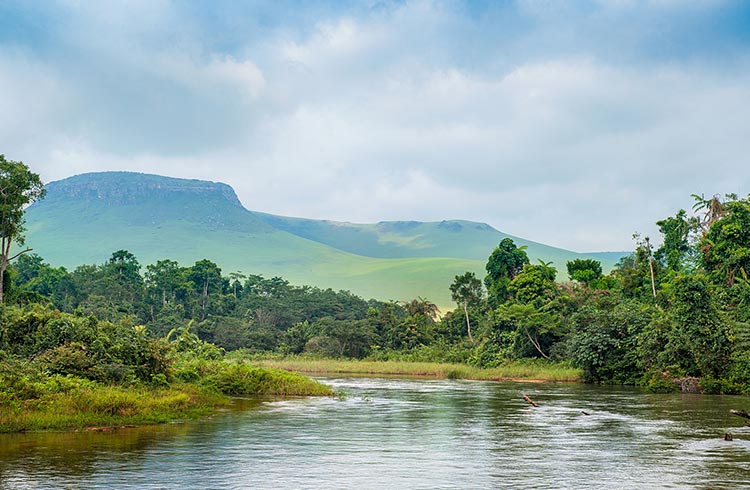How to Stay Healthy in the Democratic Republic of Congo
From malaria and cholera to typhoid and mosquito-borne illnesses, these are the health issues you need to know about before you visit the DRC.
 Photo © Getty Images/USO
Photo © Getty Images/USO
There are a number of diseases, viruses and unwanted illnesses to be aware of before you go to Africa.
If you decide to travel to the Congo, you should talk to your travel doctor so you are prepared with recommended booster shots and vaccinations for your trip.
The DRC has an array of nasty health problems, which can make you sick, and even kill you. Be prepared and stay healthy with these tips.
While in the DRC
Medical facilities are severely limited, and medical materials are in short supply. Come prepared with labelled prescription drugs and other medications, and do not expect to find an adequate supply of prescription or over-the-counter drugs in local stores or pharmacies.
Payment for any medical services is expected in cash, in advance of treatment.
Malaria is common throughout the DRC. Speak to your personal doctor about anti-malarial medication and whether it's right for you. If you don't take malarial medication, do everything you can to avoid mosquito bites: cover up wearing long-sleeved clothing and wear insect repellent.
Outbreaks of cholera, typhoid, yellow fever, the Ebola virus, and haemorrhagic fever also occur.
New diseases and viruses are found frequently in the country's deep rainforests.
Tuberculosis is an increasingly serious health concern in the DRC. Travelers are encouraged to obtain tuberculosis testing pre-travel and repeat 8–12 weeks after return.
Be aware of polio in the DRC. In 2018 two cases of polio were reported in the Haut-Katanga province of the DRC.
Many insect-borne illnesses are present. Follow insect precautions at all times, including using insect repellent and mosquito nets when possible. Yellow fever vaccine is required for entry into the country.
Travelers are encouraged to avoid contact with non-chlorinated freshwater to prevent schistosomiasis.
Sleeping sickness is also making a comeback in the Congo. Do everything you can and avoid mosquitoes in these regions.
Sleeping sickness is spread by the Tsetse Fly, insect bite avoidance measures are essential if traveling to North Eastern DRC. The symptoms of sleeping sickness include confusion, poor coordination, and disturbance of the sleep cycle. If left untreated, this disease is fatal.
Wildlife to be careful of in the DRC
Be careful around animals in the DRC as well. While most of us have heard about rabies, the Democratic Republic of Congo has another virus called Monkey Pox.
The Monkey Pox virus is usually transmitted to humans from infected ground squirrels and rodents. Symptoms include a fever, the appearance of pus-filled blisters all over the body, and lymph node swelling. You should avoid contact with people suffering these symptoms, and avoid contact with animals.
Most of these diseases and viruses are a direct result of medical attention which has become non-existent. With war and crime plaguing the whole country for decades, it's virtually impossible to guard against diseases which run rampant across large regions.
Simple and flexible travel insurance
You can buy at home or while traveling, and claim online from anywhere in the world. With 150+ adventure activities covered and 24/7 emergency assistance.
Get a quote
No Comments